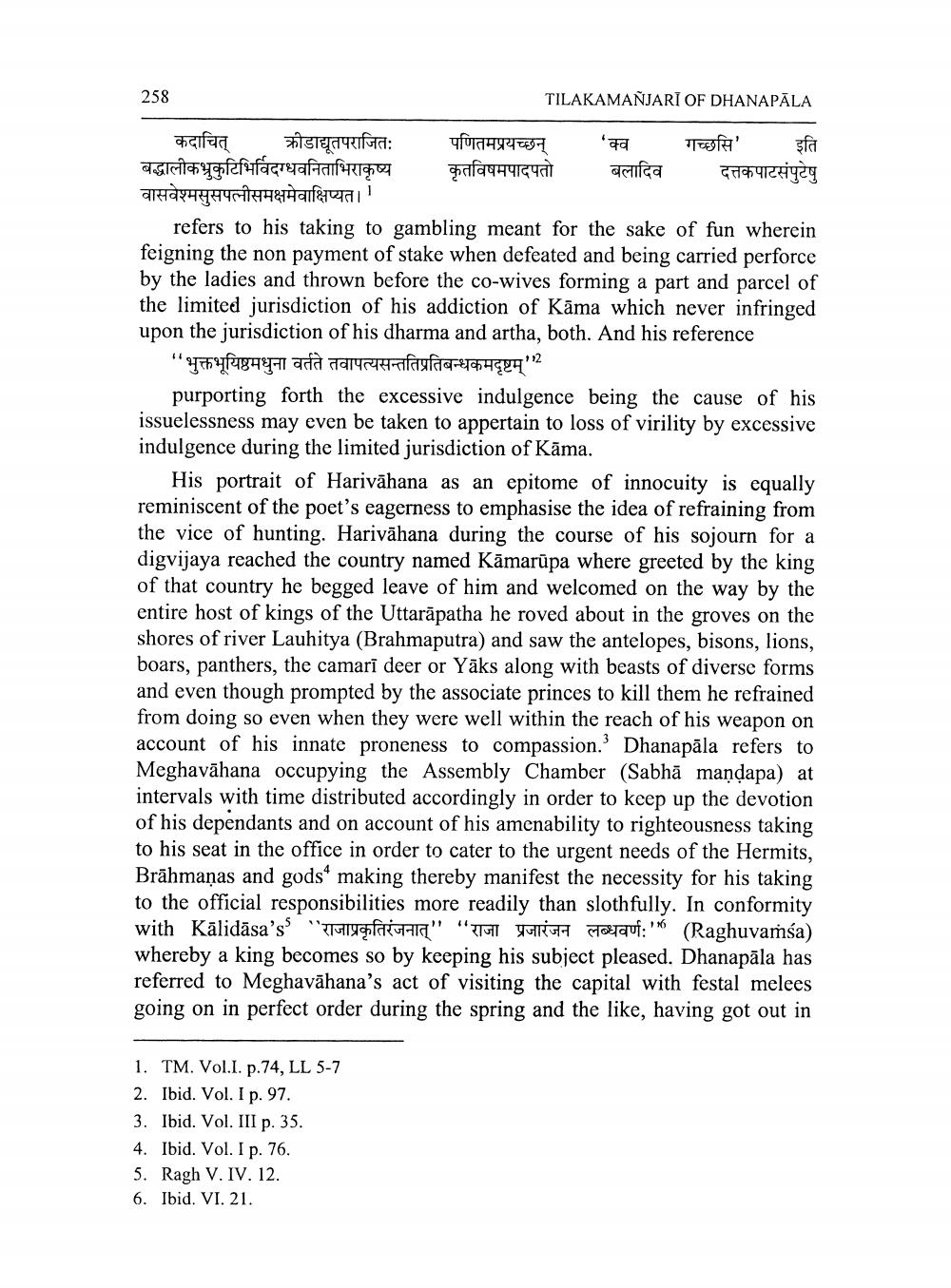________________
258
TILAKAMANJARI OF DHANAPĀLA
___ कदाचित् क्रीडाद्यूतपराजितः पणितमप्रयच्छन् 'क्व गच्छसि' बद्धालीकभृकुटिभिर्विदग्धवनिताभिराकृष्य कृतविषमपादपतो बलादिव दत्तकपाटसंपुटेषु वासवेश्मसुसपत्नीसमक्षमेवाक्षिप्यत।।
refers to his taking to gambling meant for the sake of fun wherein feigning the non payment of stake when defeated and being carried perforce by the ladies and thrown before the co-wives forming a part and parcel of the limited jurisdiction of his addiction of Kāma which never infringed upon the jurisdiction of his dharma and artha, both. And his reference
" Yfghaladà al4c44fayfa-44924'2
purporting forth the excessive indulgence being the cause of his issuelessness may even be taken to appertain to loss of virility by excessive indulgence during the limited jurisdiction of Kāma.
His portrait of Harivāhana as an epitome of innocuity is equally reminiscent of the poet's eagerness to emphasise the idea of refraining from the vice of hunting. Harivāhana during the course of his sojourn for a digvijaya reached the country named Kāmarūpa where greeted by the king of that country he begged leave of him and welcomed on the way by the entire host of kings of the Uttarāpatha he roved about in the groves on the shores of river Lauhitya (Brahmaputra) and saw the antelopes, bisons, lions, boars, panthers, the camarī deer or Yāks along with beasts of diverse forms and even though prompted by the associate princes to kill them he refrained from doing so even when they were well within the reach of his weapon on account of his innate proneness to compassion. Dhanapāla refers to Meghavāhana occupying the Assembly Chamber (Sabhā mandapa) at intervals with time distributed accordingly in order to keep up the devotion of his dependants and on account of his amenability to righteousness taking to his seat in the office in order to cater to the urgent needs of the Hermits, Brāhmaṇas and gods* making thereby manifest the necessity for his taking to the official responsibilities more readily than slothfully. In conformity with Kālidāsa's ''275119 gofali Utara." "3751 YARGI parauf:** (Raghuvamsa) whereby a king becomes so by keeping his subject pleased. Dhanapāla has referred to Meghavāhana's act of visiting the capital with festal melees going on in perfect order during the spring and the like, having got out in
1. TM. Vol.I. p.74, LL 5-7 2. Ibid. Vol. I p. 97. 3. Ibid. Vol. III p. 35. 4. Ibid. Vol. I p. 76. 5. Ragh V. IV. 12. 6. Ibid. VI. 21.




